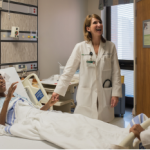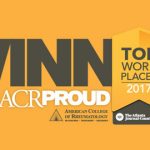Running a rheumatology practice can be expensive. Here are some tips to save money on expenses, while still investing in the growth of your practice and avoiding penny pinching…


Running a rheumatology practice can be expensive. Here are some tips to save money on expenses, while still investing in the growth of your practice and avoiding penny pinching…

Sharad Lakhanpal, MBBS, MD, & Eric L. Matteson, MD, MPH |
The Rheumatology Research Foundation and the ACR are committed to advancing the future of rheumatology to support patients living with rheumatic diseases. These organizations are focused on addressing one of the most critical issues facing patients and rheumatology today—the growing shortage of rheumatology professionals. The ACR’s 2015 Workforce Study revealed the dire need for support…

Rheumatology is facing a clinician shortage, so attracting the right candidate for your practice may require an aggressive strategy, from recruiting right out of fellowship programs to offering student loan repayment and flexible work schedules…

Steady hands, nerves of steel: The endoscopic transphenoidal hypophysectomy is a delicate neurosurgical procedure. Using a three-dimensional microscope and a powerful magnetic resonance imaging machine to guide them, the surgeon must meticulously dissect the throat tissues, navigate through the palate and the sinuses to reach the base of the skull where the pea-sized master gland,…
With a shortage of rheumatologists in the U.S. already a problem and projected to get far worse, the ACR is advocating the passage of a variety of laws that would help narrow the gap. Legislation being fought for by ACR advocacy leaders involves streamlining visa processing for foreign physicians and promoting incentives for physicians to…

Marie D. Westby, PT, PhD, & Afton L. Hassett, PsyD |
Editor’s note: The new Pillar Talk column is developed by the ARHP Executive Committee in an effort to share information about ongoing activities related to our four pillars: Education, Practice, Research and Advocacy. The ARHP Practice Committee is committed to addressing the current needs and evolving practice opportunities for health professionals working in rheumatology. A…

With a shortage of rheumatologists in the U.S. already a problem and projected to get far worse, the ACR is advocating for the passage of a variety of laws that would help narrow the gap. Legislation being fought for by ACR advocacy leaders involves streamlining visa processing for foreign physicians and promoting incentives for physicians…

Is a rheumatologist in your practice retiring? Do patients wait a long time for an appointment? Answering yes to these questions could mean it’s time to hire a new rheumatologist. Here are a few other considerations…
The ACR’s Advocacy 101 course will be held Sept. 24 in Washington, D.C. The course is an interactive, intensive, full-day opportunity for fellows in training and program directors to learn about and become inspired to advocate for the continued strength of rheumatology recruitment and support for education, research and clinical practice. Course applications will be…

Camaraderie, mission-focused work, encouragement and the freedom to innovate—for its employees, these are the characteristics that make the ACR one of Atlanta’s Top Small Workplaces…